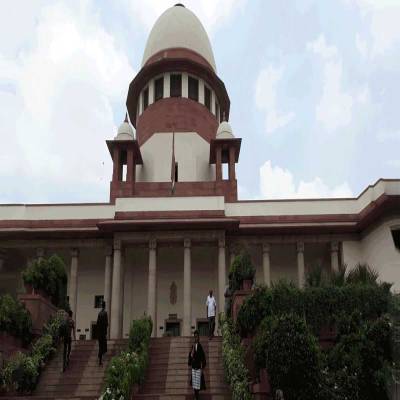- Home
- Infrastructure Urban
- ECONOMY & POLICY
- SC Upholds Arbitral Award Dispute Resolution
SC Upholds Arbitral Award Dispute Resolution
The case, which has garnered considerable attention within legal and business circles, underscores the crucial role of arbitration in settling commercial disputes and upholding contractual obligations. The arbitration process, a cornerstone of alternative dispute resolution mechanisms, is designed to provide parties with a streamlined and efficient means of resolving conflicts outside of traditional court proceedings.
In this instance, the disagreement between SAIL and L&T over the supply contract escalated to arbitration, a common recourse for parties seeking resolution beyond the confines of litigation. The arbitral tribunal, after due deliberation and examination of evidence, rendered its decision in favour of L&T, awarding them ?31 crore in damages. However, dissatisfied with the outcome, SAIL chose to challenge the arbitral award in the Supreme Court, contending various legal grounds in an attempt to overturn the decision.
The Supreme Court's ruling to uphold the arbitral award marks a significant milestone in India's legal landscape, reaffirming the sanctity of arbitration agreements and the binding nature of arbitral awards. By dismissing SAIL's plea, the Court has sent a clear message regarding the importance of respecting contractual commitments and abiding by the decisions reached through arbitration.
Furthermore, the judgment sets a precedent for future commercial disputes, emphasising the need for parties to honour their contractual obligations and engage in good faith efforts to resolve conflicts through established mechanisms such as arbitration. This decision not only promotes legal certainty and predictability but also contributes to the overall efficiency of the justice system by alleviating the burden on courts and facilitating quicker resolution of disputes.
In conclusion, the Supreme Court's dismissal of SAIL's plea against the ?31 crore arbitral award to L&T reaffirms the judiciary's commitment to upholding the integrity of arbitration processes and fostering a conducive environment for commercial dispute resolution in India.
The Supreme Court of India recently delivered a significant judgment in the realm of commercial dispute resolution, dismissing a plea filed by the Steel Authority of India Limited (SAIL) challenging a ?31 crore arbitral award in favour of Larsen & Toubro (L&T). The dispute stemmed from a contractual agreement between the two prominent entities concerning the supply of refractories. The case, which has garnered considerable attention within legal and business circles, underscores the crucial role of arbitration in settling commercial disputes and upholding contractual obligations. The arbitration process, a cornerstone of alternative dispute resolution mechanisms, is designed to provide parties with a streamlined and efficient means of resolving conflicts outside of traditional court proceedings. In this instance, the disagreement between SAIL and L&T over the supply contract escalated to arbitration, a common recourse for parties seeking resolution beyond the confines of litigation. The arbitral tribunal, after due deliberation and examination of evidence, rendered its decision in favour of L&T, awarding them ?31 crore in damages. However, dissatisfied with the outcome, SAIL chose to challenge the arbitral award in the Supreme Court, contending various legal grounds in an attempt to overturn the decision. The Supreme Court's ruling to uphold the arbitral award marks a significant milestone in India's legal landscape, reaffirming the sanctity of arbitration agreements and the binding nature of arbitral awards. By dismissing SAIL's plea, the Court has sent a clear message regarding the importance of respecting contractual commitments and abiding by the decisions reached through arbitration. Furthermore, the judgment sets a precedent for future commercial disputes, emphasising the need for parties to honour their contractual obligations and engage in good faith efforts to resolve conflicts through established mechanisms such as arbitration. This decision not only promotes legal certainty and predictability but also contributes to the overall efficiency of the justice system by alleviating the burden on courts and facilitating quicker resolution of disputes. In conclusion, the Supreme Court's dismissal of SAIL's plea against the ?31 crore arbitral award to L&T reaffirms the judiciary's commitment to upholding the integrity of arbitration processes and fostering a conducive environment for commercial dispute resolution in India.
























